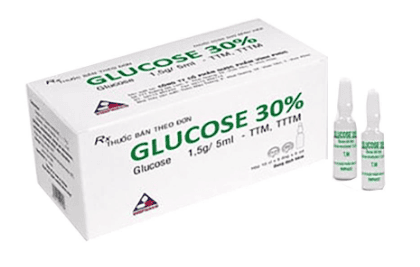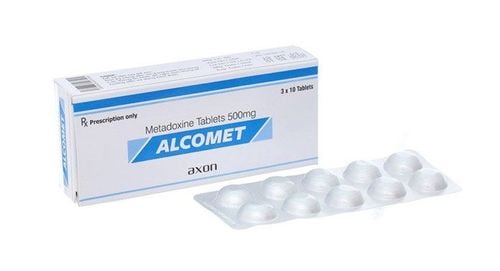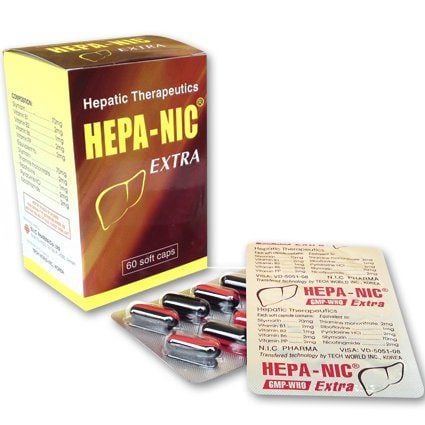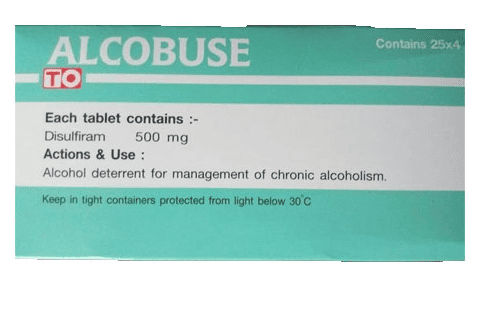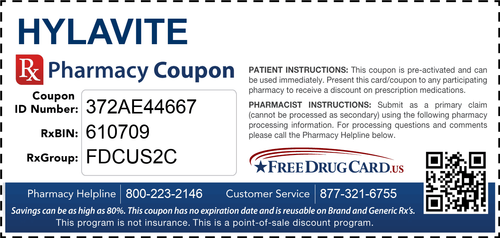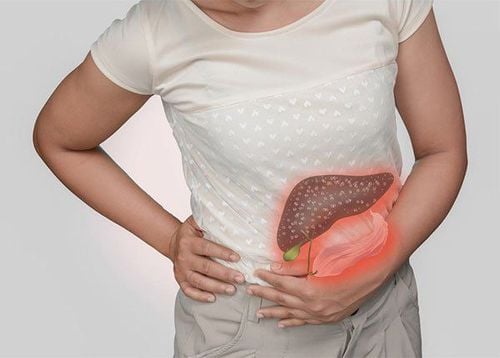This is an automatically translated article.
The article is professionally consulted by Master, Doctor Mai Vien Phuong - Gastroenterologist - Department of Medical Examination & Internal Medicine - Vinmec Central Park International General Hospital.In recent years, alcohol is becoming the main cause of acute pancreatitis. If left untreated, acute pancreatitis can cause bleeding, severe tissue damage, infection, and cysts.
1. Acute pancreatitis due to heavy drinking
The pancreas is a large gland located behind the stomach and next to the small intestine. The pancreas has two main jobs: The first is to release powerful digestive enzymes into the small intestine to help you digest food, and the second is to release insulin and glucagon into the bloodstream. These hormones help the body control how it uses food for energy. The pancreas can be damaged when digestive enzymes start working before the pancreas releases them.Besides the causes of acute pancreatitis such as: infection, gallstones, drugs, metabolic disorders, surgery, trauma, etc., drinking a lot of alcohol is gradually becoming the leading cause of the disease.
This is because alcohol can cause narrowing of the small tubes that drain fluid in the pancreas, leading to a blockage, eventually causing acute pancreatitis. People who drink a lot of alcohol over a long period of time will cause chronic pancreatitis. An episode of acute pancreatitis can also occur after a heavy drink or a large meal that many people mistake for food poisoning or gastrointestinal bleeding.
Acute pancreatitis is a sudden inflammation that lasts for a short time. It ranges from mild discomfort to severe, life-threatening symptoms. Most people with acute pancreatitis recover completely with the right treatment. In severe cases, acute pancreatitis can cause bleeding, severe tissue damage, infection, and cysts. Severe pancreatitis can also damage other vital organs such as the heart, lungs, and kidneys.
Symptoms of acute pancreatitis such as:
Fever Higher heart rate Nausea and vomiting Abdominal swelling and pain. Pain in the upper part of the abdomen that goes into your back, when eating can make your stomach hurt more, especially high-fat foods. Chronic pancreatitis is long-lasting inflammation. This condition usually occurs after an episode of acute pancreatitis. Another cause of chronic pancreatitis is drinking a lot of alcohol over a long period of time. Damage to the pancreas from heavy alcohol use may not cause symptoms for many years, but then you may suddenly have severe symptoms of pancreatitis.
Symptoms of chronic pancreatitis are similar to acute pancreatitis such as:
Constant pain in your upper abdomen that radiates to your back Diarrhea and weight loss because the pancreas does not release enough enzymes to break down food Abdominal pain and vomit
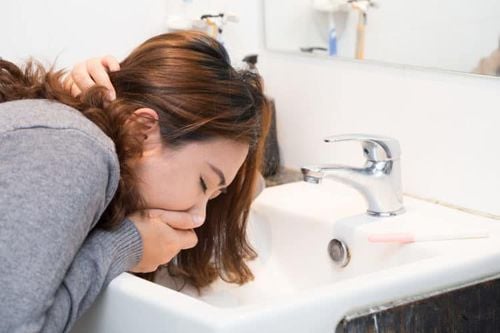
Pancreatitis can have serious complications, including:
Diabetes if there is damage to the cells that produce insulin Pancreatitis Kidney failure Malnutrition if the body can't get enough nutrients from food Food you eat because of a lack of digestive enzymes If you have chronic pancreatitis, you need more treatments, including: Insulin to treat diabetes Pain medications Pancreatic enzymes help the body get enough nutrients from food Eating Surgery or procedures to relieve pain, help drain, or treat a blockage
2. Diagnosis of acute pancreatitis
To diagnose acute pancreatitis, your doctor will test your blood for two digestive enzymes: amylase and lipase. High levels of these two enzymes mean you may have acute pancreatitis.Other tests may include:
Pancreatic function tests to find out if your pancreas is producing the right amount of digestive enzymes Ultrasound, CT scan and MRI, which create pictures of your pancreas ERCP, in which your doctor uses a long tube with a camera on the end to look at your pancreatic and bile ducts Biopsy, in which your doctor uses a needle to remove a small piece of tissue from your pancreas to be examined under microscope. In some cases, a doctor may test a person's blood and stool to confirm the diagnosis. Your doctor may also do a glucose tolerance test to measure damage to the cells in your pancreas that make insulin.
Common treatments include:
Antibiotics if the person's pancreas is infected Intravenous (IV) fluids, given through a needle. Low fat diet or fasting. The patient may need to stop eating so your pancreas can recover. In this case, the person will receive nutrition through a feeding tube. Painkillers If your case is more severe, treatment may include:
ERCP to remove gallstones if the patient is blocking the bile duct or pancreatic duct. Gallbladder surgery if gallstones are the cause of pancreatitis. Pancreatic surgery to clean up dead or diseased fluid or tissue.
3. Prevention of acute pancreatitis
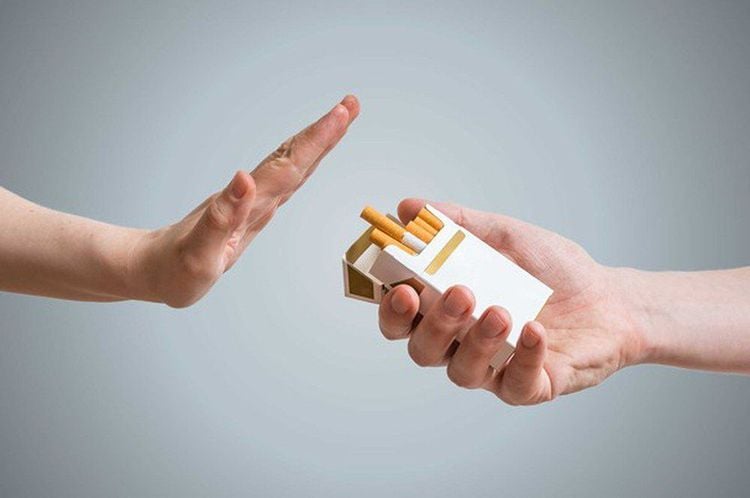
Besides, stopping smoking, following a reasonable diet and taking adequate medicine will help the patient to fight acute pancreatitis.
With nearly 10 years of experience in the field of Gastrointestinal Endoscopy, Master, Doctor Mai Vien Phuong has successfully performed many complicated endoscopic interventions, detecting many digestive cancer lesions at an advanced stage. early, bringing health and peace of mind to many patients. Doctor Phuong specializes in early cancer diagnosis in stomach and colon, endoscopic retrograde cholangiopancreatography in the treatment of biliary tract stones, biliary atresia, cholangiocarcinoma, biliary fistula and treatment of cardiac spasms with technique of opening muscle through the mouth to treat cardiac spasms.
Please dial HOTLINE for more information or register for an appointment HERE. Download MyVinmec app to make appointments faster and to manage your bookings easily.
Source: Webmd.com; Mayoclinic.org




